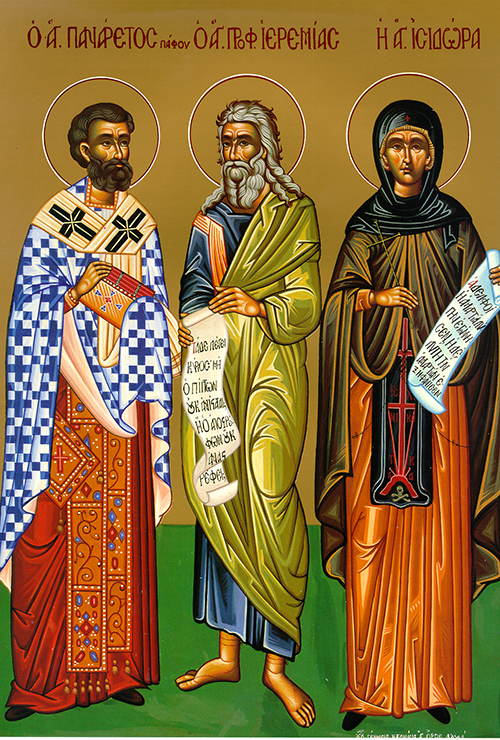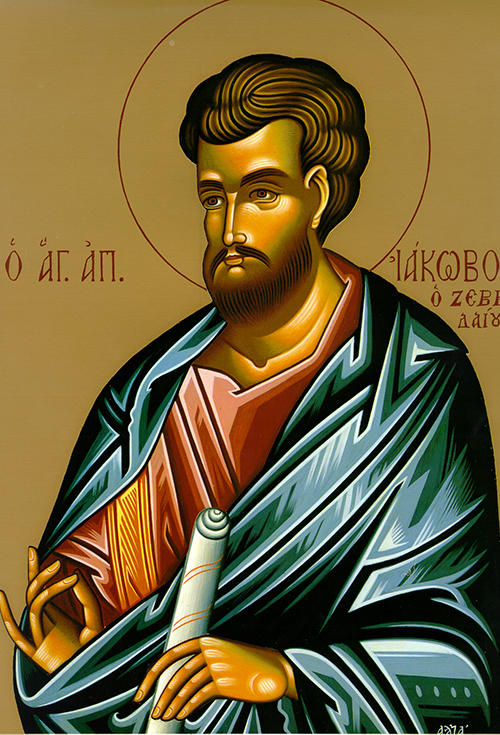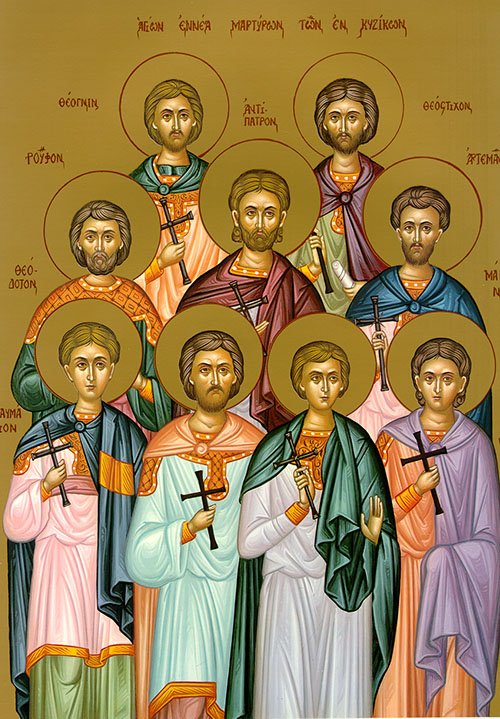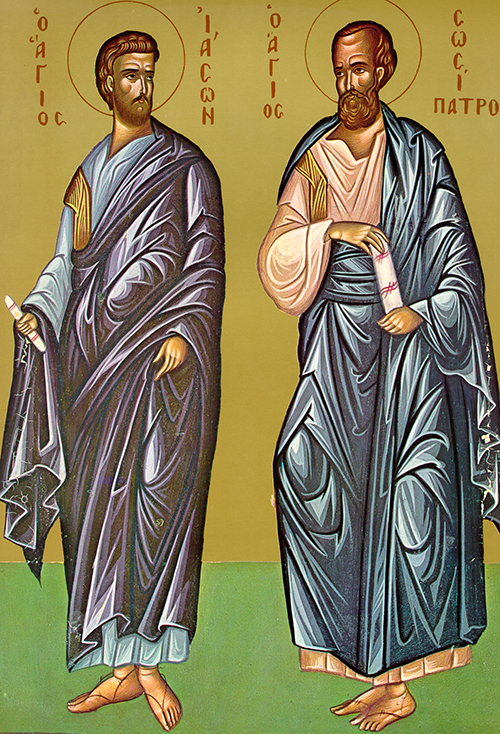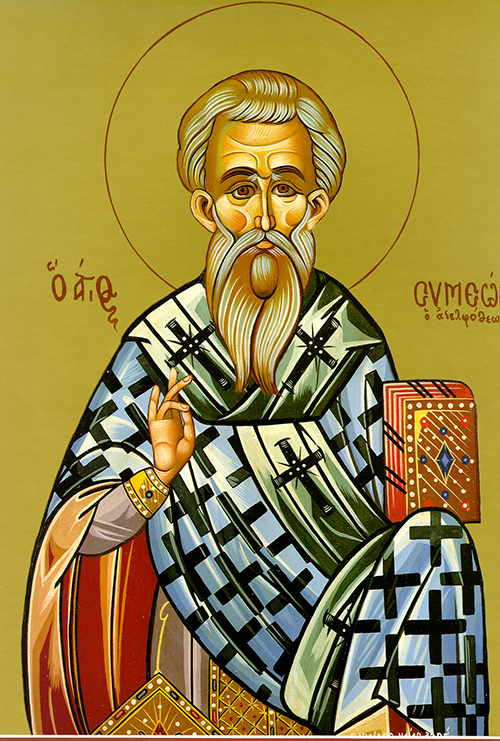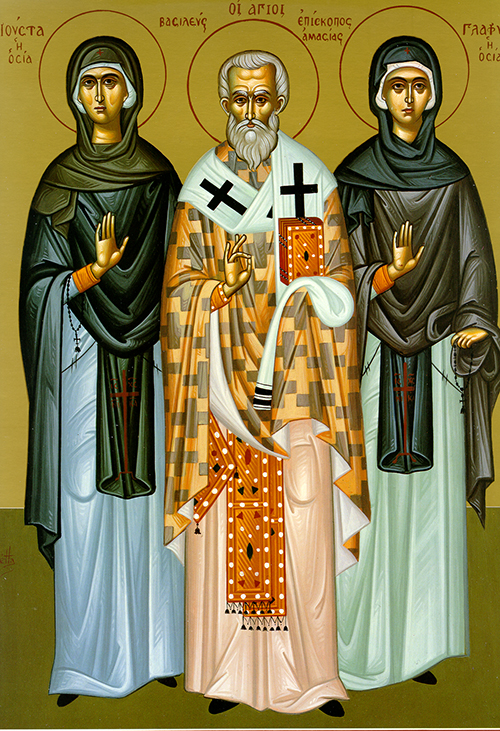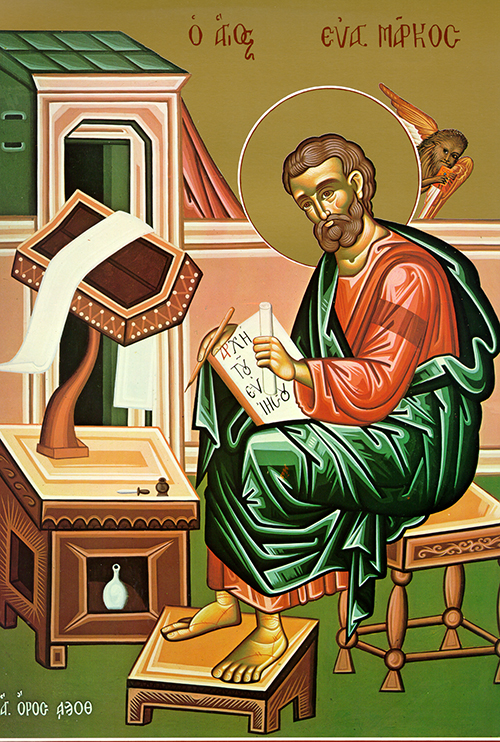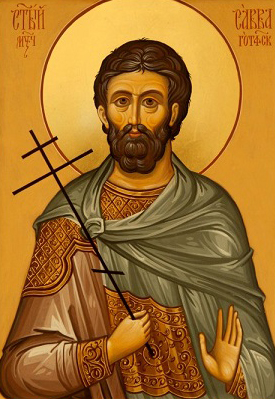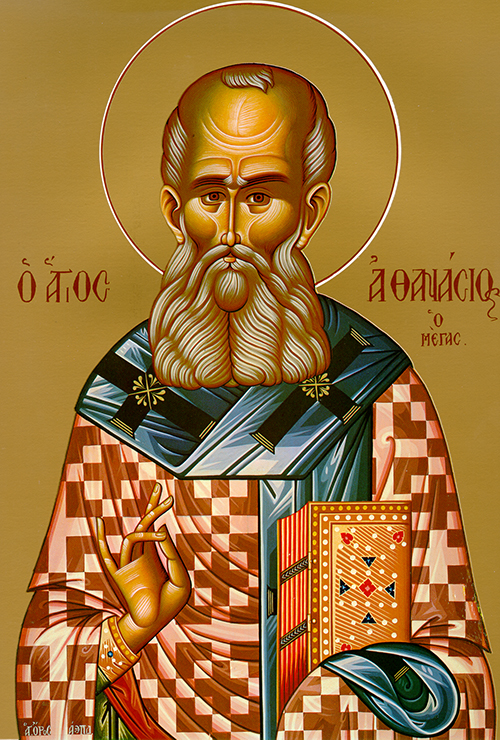

Our holy father Athanasius the Great, archbishop of Alexandria, most outstanding in his holiness and teaching, who vigorously fought for the orthodox faith in Alexandria and Egypt from the time of Constantine to that of the emperor Valens. He patiently suffered many intrigues from the Arians and was frequently forced into exile. When he had finally returned to the Church entrusted to him, after many trials and crowns of patience, he rested in the peace of Christ in the forty-sixth year of his priesthood in the year 373.
Troparion
You were the pillar of Orthodoxy, supporting the Church. You preached the divine dogma that the Son was of one nature with the Father, O holy father and archbishop Athanasius, you made Arius blush with shame. Beg Christ our God to have mercy on us.
Kontakion
Blaring trumpet of the Lord and flute of the Spirit, O great Athanasius, o fiery mind, it is fitting to sing your praises with hymns; for you taught us to honor the Trinity of one essence.
Epistle
Acts 14:20b – 15:4
In those days, Paul left with Barnabas for Derbe. After they had proclaimed the good news in that town and made numerous disciples, they retracted their steps to Lystra and Iconium first, then to Antioch. They gave their disciples reassurances, and encouraged them to preserve in the faith with this instruction: “We must undergo many trials if we are to enter into the reign of God.” In each church they installed presbyters and, with prayer and fasting, commended them to the Lord in whom they had put their faith.
Then they passed through Pisidia and came to Pamphylia. After preaching the message in Perga, they went down to Attalia. From there they sailed back to Antioch, where they had first been commended to the favor of God for the task they had now completed. On their arrival, they called the congregation together and related all that God had helped them accomplish, and how he opened the door of faith to the Gentiles. Then they spent some time there with the disciples.
Some men came down to Antioch from Judea and began to teach the brothers, “Unless you are circumcised according to Mosaic practice, you cannot be saved.” This created dissension and much controversy between them and Paul and Barnabas. Finally it was decided that Paul, Barnabas, and some others should go up to see the apostles and presbyters in Jerusalem about this question.
The church saw them off and they made their way through Phoenicia and Samaria, telling everyone about the conversion of the Gentiles as they went. Their story caused great joy among the brothers. When they arrived in Jerusalem they were welcomed by that church, as well as by the apostles and the presbyters, to whom they reported all that God has helped them accomplish.
Gospel
John 9:39-41, 10:1-9
The Lord said to the people coming to him: “I came into this world to divide it, to make the sightless see and the seeing blind.” Some of the Pharisees around him picked this up, saying, “You are not calling us blind, are you?” To which Jesus replied: “If you were blind there would be no sin in that. ‘But we see,’ you say, and your sins remain. Truly I assure you: Whoever does not enter the sheepfold through the gate but climbs in some other way is a thief and a marauder. The one who enters through the gate is shepherd of the sheep; the keeper opens the gate for him. The sheep hear his voice as he calls his own by name and leads them out. When he has brought out those that are his, he walks in front of them, and the sheep follow him because they recognize his voice. They will not follow a stranger; such a one they will flee, because they do not recognize a stranger’s voice.”
Even though Jesus used this figure with them, they did not grasp what he was trying to tell them. He therefore said to them again: “My solemn word is this: I am the sheepgate. All who came before me were thieves and marauders whom the sheep did not heed. I am the gate. Whoever enters through me will be safe. He will go in and out, and find pasture.”
Icon courtesy of Jack Figel, Eastern Christian Publications – ecpubs.com


